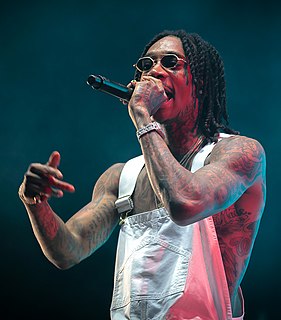A Quote by Paul Wall
I've always been adventurous - my wife calls me 'the Hip Hop Crocodile Hunter' - if you can survive in the hood, you can survive anywhere.
Related Quotes
I do not use airplanes. They strike me as unsporting. You can have an automobile accident-and survive. You can be on a sinking ship-and survive. You can be in an earthquake, fire, volcanic eruption, tornado, what you will-and survive. But if your plane crashes, you do not survive. And I say the heck with it.
Somewhere down the line, the evil ones stole the legacy of hip hop and flipped it to a corporate type of hip hop. They decided to tell everybody 'Well, this is what hip hop is,' instead of coming back to the pioneers and getting the true definition of what hip hop is and what it was and what we been pushing for all these years.
Not only did we survive AIDS, Reaganomics, poverty, racism, gang violence, police brutality, substance abuse - not only did we survive that, we created something endured. And whatever you might think of commercial hip hop now, there's a lot there to like and there's a lot there to critique and there's a lot of things you could say both about. But we created something that endured when we ourselves were not supposed to endure. When we ourselves were not supposed to survive and thrive. So I think that is worthy of respect and preservation and it's US history.
To me, that's the biggest problem with hip-hop today is the fact that everyone believes that all of hip-hop is rap music, and that, when you say "hip-hop," it's synonymous with rap. That when you say "hip-hop," you should be thinking about breakdancing, graffiti art, or MCing - which is the proper name for rap - DJing, beat-boxing, language, fashion, knowledge, trade. You should be thinking about a culture when you say, "hip-hop.".
































